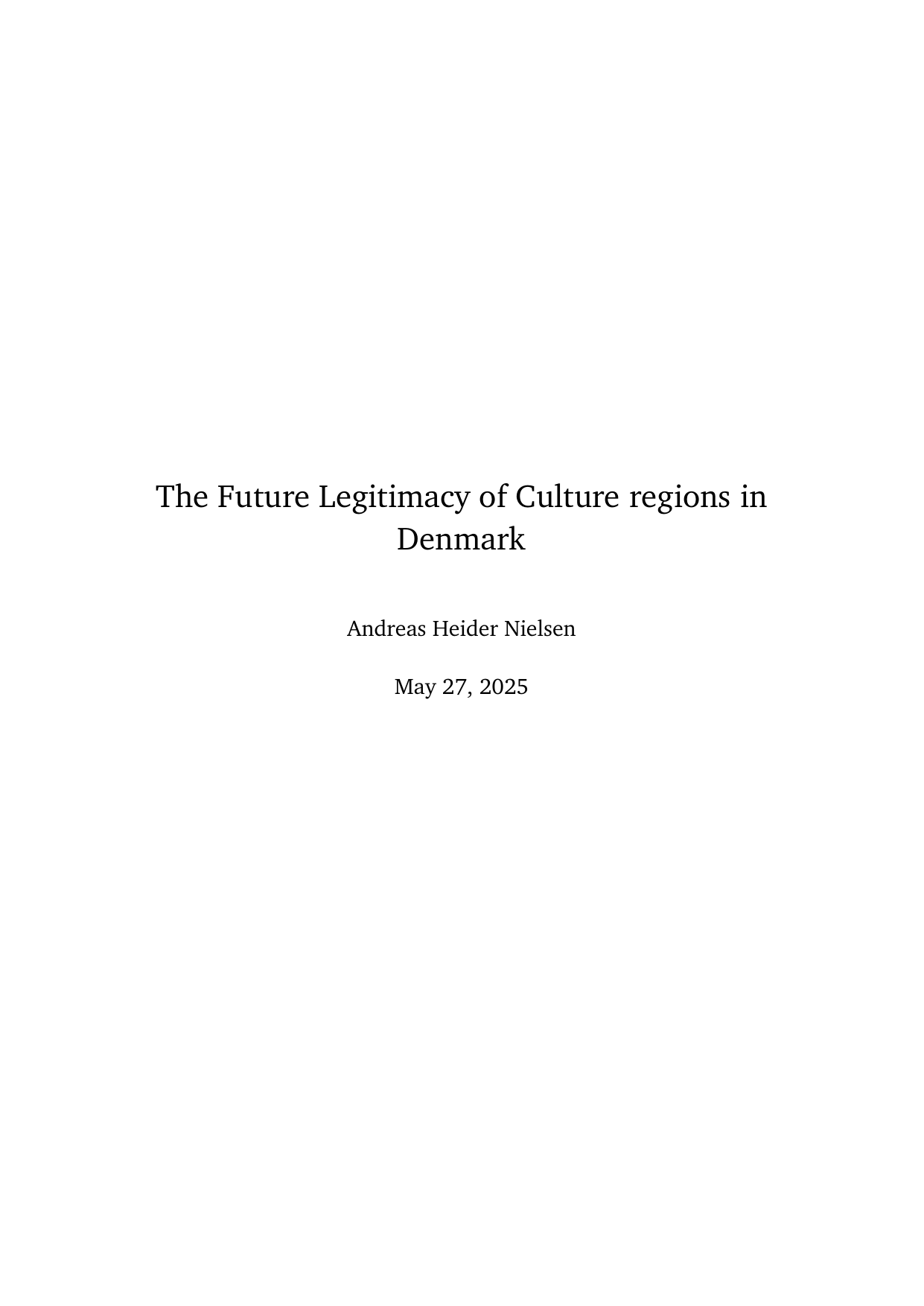
The future legitimacy of culture regions in Denmark
Author
Term
4. term
Education
Publication year
2025
Submitted on
2025-05-28
Pages
53
Abstract
This thesis explores the future legitimacy of culture regions in Denmark, focusing on the case of Kulturkanten, a cultural collaboration encompassing 11 municipalities in Northern Jutland. Through an ethnographic and techno-anthropological approach, the study examines how recent structural reforms—such as the withdrawal of the national Agency for Culture and Palaces (SLKS) and new annual agreements—have created a power vacuum and altered governance dynamics in culture regions. Using actor-network theory (ANT) and institutional theory, the research analyzes how various actors (e.g., municipal administrators, politicians, and culture consultants) navigate shifting roles and responsibilities. The study reveals how institutional legitimacy now has to be reestablished among a more diverse and decentralized network of actors. The thesis identifies communication gaps, unclear ownership, and challenges in maintaining cohesive collaboration as key risks to the sustainability of culture regions. Ultimately, the thesis argues that for Kulturkanten and similar regions to remain viable, they must develop new internal structures of legitimacy and communication to replace the centralized guidance previously provided by SLKS.
Documents
